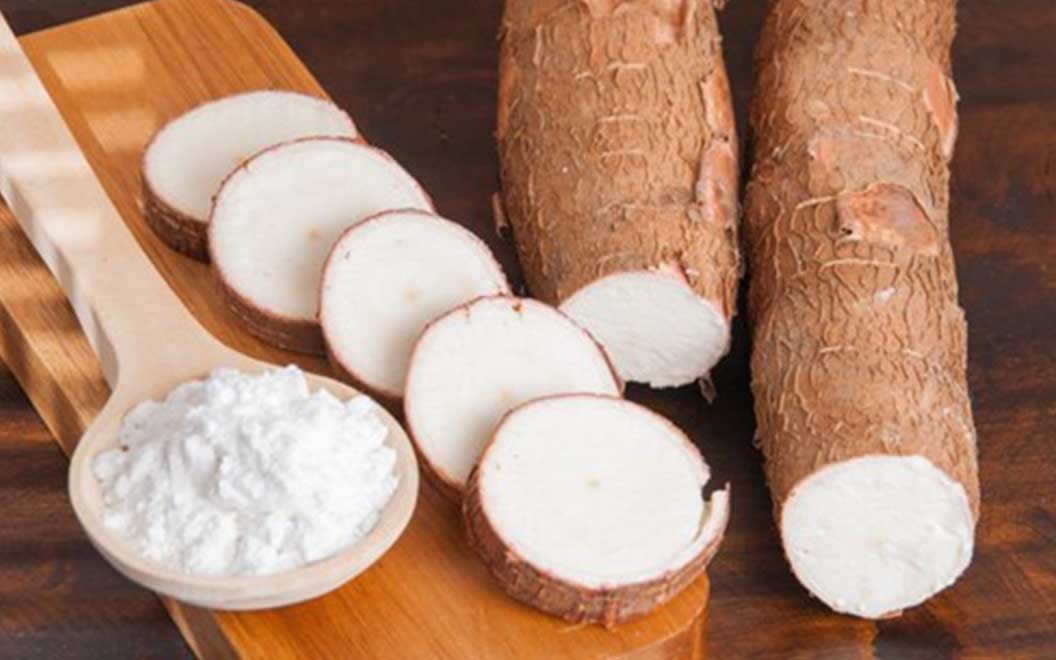Undoubtedly, cassava as a crop has become one of the important crops in the world due to its high rate of dependency on humans. Currently, research has proven that over half a billion people rely on this cultivated crop for food. Processed cassava produce such as starch, chips, syrup, and ethanol are all big products in the world market with billions of dollars in demand. Starch has been noted to be one of the main components of most cassava varieties; it can form up to 50 per cent of the components of the raw cassava and starch is very important to produce both in the food and non-food producing industries.
Cassava is one of the most important crops for producing starch and it is rated as the second best-modified starch producer in the world. The demand for starch as an industrial raw material for both food processing industries such as the pastries producers and non-food industries such as the pharmaceutical and the textile producers have risen significantly as the modified starch market is estimated to reach about US$ 10,700 million by 2023. Ghana is currently the second-highest producer of cassava in Africa with about 20 million tons.
In Ghana, cassava doubles as the highest producing crop in the country by a large margin with about 20 million metric tons with the second being yam with about 8 million tons a year yield with the majority of the population of Africa depending on cassava for survival as it provides food as well as occupation to farmers and traders. But this projection implies that Ghana can get a great economic benefit for cassava producers and the cassava value chain at large. In Asia, particularly, cassava starch is produced for use as feedstock for the production of sweeteners, fructose, alcohol, and monosodium glutamate, and in plywood, paper and textiles. It is, however, striking to know that in modern starch extraction plants, daily output is as high as 300 tons.
If Ghana can process cassava well, it can help decrease the nation’s dependency on foreign aids, and through increased local production and processing of cassava to be used by local industries such as the alcohol production industries, paper, and textile industries and the food making industries that spend millions of Ghana cedis just to import modified starch, ethanol, cassava chips, flour and also export for revenue as cassava starch can be used extensively for sizing and dyeing in the textile industries to increase brightness and weight of the cloth and also as a filler material and bonding agent for making tablets in the pharmaceutical industries.
Prospects of industrializing the cassava sector of Ghana Ethanol production, especially for local consumption, are another opportunity for industrializing the cassava sector in Ghana. The market for ethanol for both food and non-food industries is huge and over the years about 60 million litres of ethanol are being imported into Ghana according to Grow Africa. Kasapreko alone uses about 25 million litres of the total annual imported ethanol. Their project to produce ethanol locally saw them invest about 7.5 million USD into the production of ethanol by local producers as part of the company’s strategic program to source local raw material and create jobs. Increasingly, cassava is also being used for the production of fuel ethanol. In 2012, China produced 780 million litres of bioethanol from 6 million tons of dried cassava.
However, according to research, factors that hinder the successful industrialization of the cassava sector in Ghana can be well attributed to the limited industrial large-scale processing to the low starch yielding ability of available cassava varieties. But these problems can be solved only if we pay more attention to cassava and its processed products.
From the planting through to the flexibility of the various farming systems practised, the resistance to drought, the yield, and even the economic benefits in the world; it is quite amazing that cassava is only cultivated in Ghana here as a staple crop and the required and necessary efforts are not made to convert cassava as a cash crop. Hopefully, cassava will become the new Gold in our country and the benefits that are enjoyed by Thailand and China will also be enjoyed by our beloved country.
“Research has proven that over half a billion people rely on cassava for food


Comments are closed.